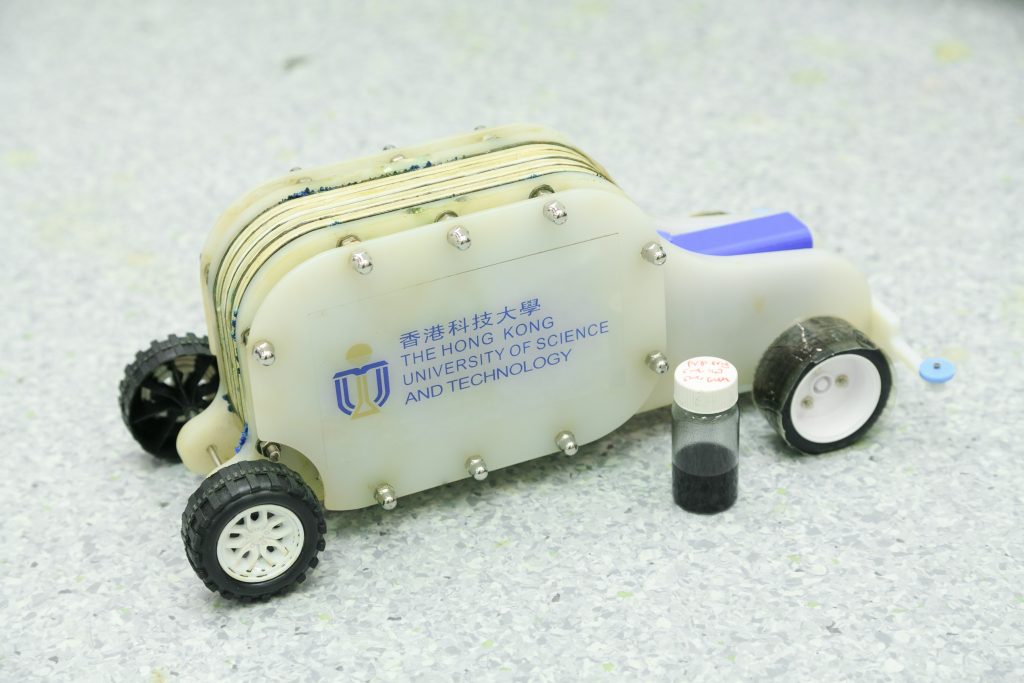E-Fuel Recharges Electric Vehicles in Just a Few Minutes
October 21, 2019
A cross-university research project led by HKUST has successfully developed an environment-friendly rechargeable liquid fuel that promises to have impact on a global scale. It can fully recharge an electric vehicle in a matter of minutes – a great enhancement from existing battery technology which usually takes hours.
The research, titled “Creation of Rechargeable Electron-fuels for Stationary Power Supplies and Electric Vehicles”, is led by Prof. ZHAO Tianshou of HKUST and supported by academics from The University of Hong Kong, The Chinese University of Hong Kong, and The Hong Kong Polytechnic University.
Unlike recharging a battery for hours for an electric vehicle, recharging the vehicle with e-fuel takes a matter of minutes. E-fuel is carbon-neutral if recharged with solar or wind energy, it won’t go away like fossil fuels do after the consumption. At the recharging station, the energy-depleted e-fuel is removed from the fuel tank, which then is refilled with fully-charged e-fuel.”
The e-fuel system adopts the chemistry of a lithium-sulfur battery for the high capacity of the lithium metal and the low cost of the sulfur cathode. While the research team made great progress in developing e-fuel, they still had challenges to overcome. First, dendrites forming on the lithium surface may shorten the battery life. Second, the discharged sulfur will dissolve and diffuse to damage the lithium anode.
The solution is to form a porous lithium anode. With two spontaneous reactions, we formed a porous lithium anode on a carbon skeleton, and coated it with a protective, composite layer.
This simple yet effective approach led to one of the best performance records ever achieved for a high-loading lithium-sulfur battery. The loading – meaning the amount of active materials per area of the device, has to be high so that the high performance on paper can eventually translate into a practical, high-performance system.
The five-year research project – from 2018 to 2022 – is funded by the Research Grants Council Theme-based Research Scheme to the tune of HK$50 million.

